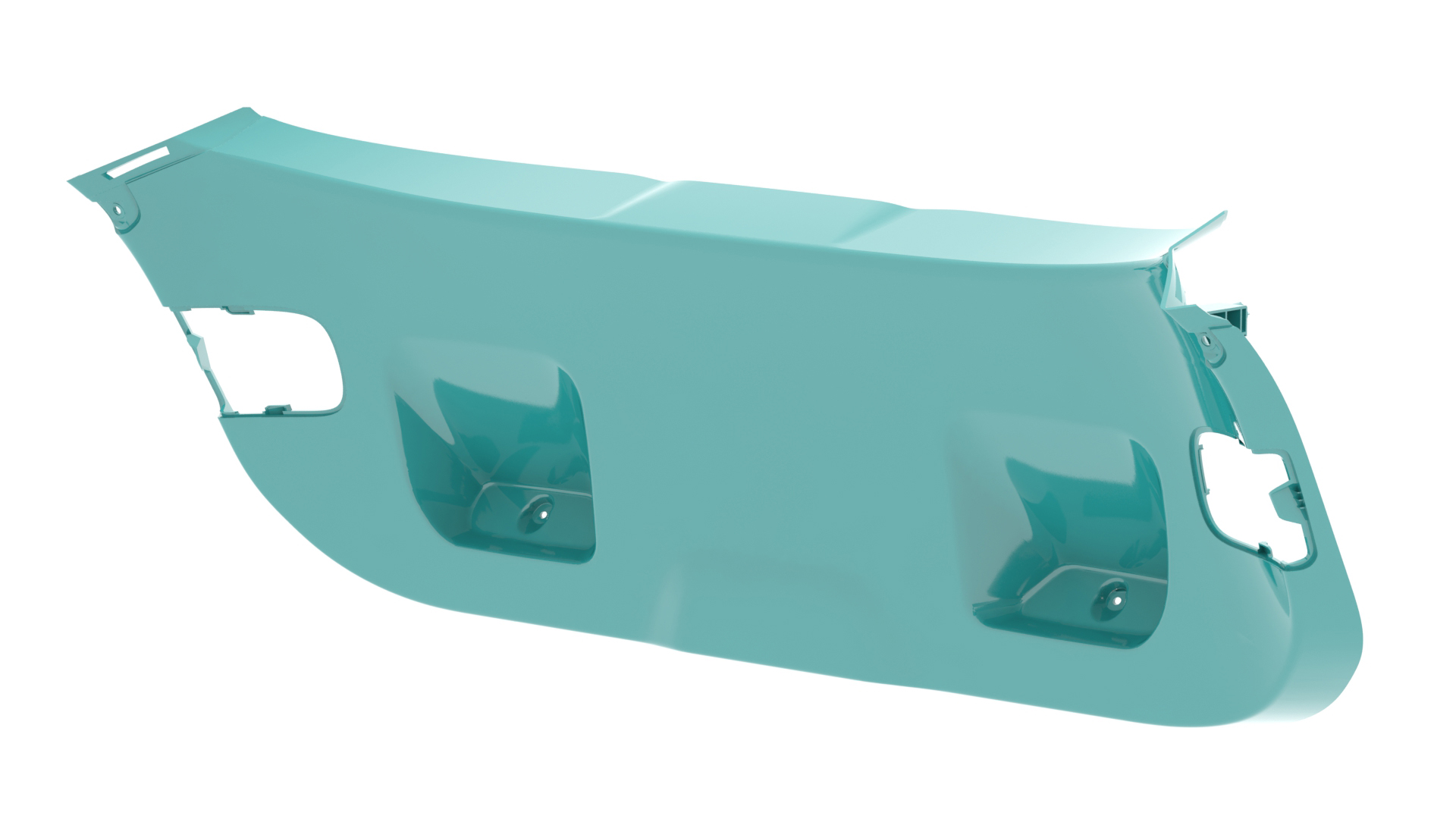SABIC introduced a specialized portfolio of SABIC® PP compounds for foam injection molding (FIM). New mineral-reinforced SABIC® PPc F9005, PPc F9007 and PPc F9015 grades can help deliver excellent aesthetics for visible automotive interior parts with complex geometries, such as door panels and trim, seat and trunk cladding, A/B/C/D pillar covers and center consoles.
Unlike standard FIM materials, which typically exhibit surface defects, the new advanced PP compounds feature uniformly high surface quality similar to solid injection molded parts. Compared to solid components, foamed parts made with SABIC PP compounds offer significant weight savings that can help cut emissions. According to a cradle-to-grave life cycle assessment study (pending third-party review), the advanced new materials can help OEMs lower carbon dioxide (CO2) emissions by as much as 15 percent.
“The automotive industry continues to look for new weight-out strategies that can advance energy efficiency and sustainability goals,” said Abdullah Al-Otaibi, general manager, ETP & Market Solutions, SABIC. “Although foam injection molding produces desirable lightweight parts, manufacturers have been forced to sacrifice aesthetics, until now. We applied our extensive expertise in foaming technology to develop these new compounds to help resolve the issue of surface quality and open new application opportunities for foamed parts.”
Solving the FIM aesthetics challenge
Previously, the FIM process was essentially limited to non-visible parts, restricting its usefulness in automotive applications. Foaming can underperform in surface aesthetics: silver streaking, swirl lines and dimples are common defects. SABIC PP compounds for foamed interior parts deliver low-gloss textured (grained) surfaces with uniformly high quality, including the elimination of streaking and swirling. Talc filler in these grades acts as a nucleator that promotes the generation of finer bubbles, which contribute to a consistent surface appearance. For enhanced aesthetics, these grades are currently available in selected automotive interior colors with custom coloring also available.

Optimizing weight-out benefits
Weight reduction results with SABIC PP compounds depend on several factors, including the type of FIM technique used. Short-shot molding, which uses the same tooling as an injection molded part, can reduce weight by up to 10 percent. SABIC PPc 9007 is formulated for short-shot FIM and low-impact applications. Core-back molding, which requires part redesign and new tooling, can lower weight by as much as 30 percent. Both SABIC PPc 9005 and PPc 9015 grades are formulated for core-back molding and deliver medium stiffness and impact.
The choice between the short-shot and core-back techniques, with their different tooling requirements, also helps to determine whether FIM with SABIC PP compounds is cost neutral or delivers cost savings. Additional cost savings are possible from cycle time reductions from flow improvements inherent in FIM.
Another consideration is the foaming process, which can use chemical or physical agents. The new SABIC PP compounds are good candidates for use with chemical blowing agents, which are typically preferred for visible foamed parts. These agents are introduced to the molding machine in the form of a masterbatch, along with the plastic pellets, and activate during the melt phase to release gases for foaming.
Supporting FIM application development and processing
SABIC fully supports its new PP compound portfolio with extensive expertise in foamed part design, development and processing, as well as predictive engineering capability. For instance, the company can provide guidance on the selection of the appropriate chemical blowing agent for each grade. SABIC’s technical team will collaborate with customers to achieve excellent aesthetics at the lowest possible part weight.
To drive future developments in polymer foams, SABIC operates a Foam Innovation Center in The Netherlands. This center, which is equipped with foam process capabilities as well as analytical equipment, enables the company to develop new foam solutions and technology innovations and collaborate with customers.
The new SABIC PP compounds have launched in Europe, with upcoming availability in the Americas and Asia/Pacific.














